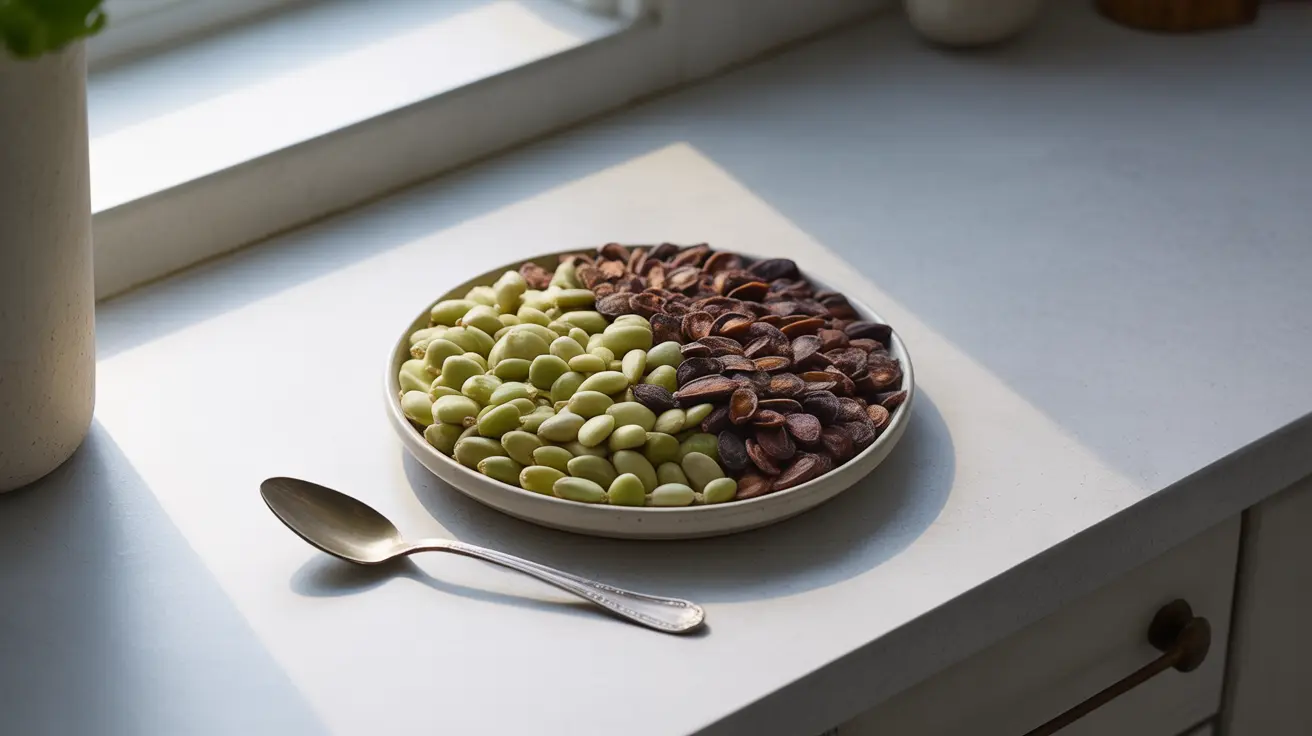Many people automatically spit out or avoid watermelon seeds, but these small black seeds actually pack a surprising nutritional punch. Understanding the benefits and proper ways to consume watermelon seeds can help you make informed decisions about incorporating them into your diet.
In this comprehensive guide, we'll explore the safety, nutritional value, and potential health benefits of watermelon seeds, along with the best ways to prepare and eat them.
Nutritional Profile of Watermelon Seeds
Watermelon seeds are rich in several essential nutrients that contribute to overall health:
- Protein (approximately 30g per cup of dried seeds)
- Healthy fats, including omega-3 and omega-6 fatty acids
- Magnesium
- Iron
- Zinc
- Folate
- Fiber
Safe Consumption and Preparation Methods
Raw watermelon seeds are perfectly safe to eat, but they're more nutritious when prepared properly. Here are the most effective ways to consume them:
Sprouting
Sprouting watermelon seeds increases their nutritional availability and makes them easier to digest. To sprout:
- Soak the seeds in water for 24-48 hours
- Drain and rinse thoroughly
- Keep in a sprouting container until tiny sprouts appear
- Consume within a few days
Roasting
Roasted watermelon seeds make a delicious, crunchy snack. To prepare:
- Clean and dry the seeds thoroughly
- Toss with a small amount of oil and optional seasonings
- Roast at 325°F (165°C) for 15-20 minutes
- Allow to cool before eating
Health Benefits of Watermelon Seeds
Blood Sugar Management
Watermelon seeds contain compounds that may help regulate blood sugar levels. The magnesium content, in particular, plays a role in insulin function and glucose metabolism.
Heart Health Support
The healthy fats and minerals in watermelon seeds contribute to cardiovascular health by:
- Supporting healthy blood pressure levels
- Providing beneficial omega fatty acids
- Contributing to proper heart muscle function
Digestive Health
The fiber content in watermelon seeds supports digestive health and regular bowel movements. However, it's important to introduce them gradually into your diet to avoid digestive discomfort.
Safety Considerations
While watermelon seeds are generally safe for most people, there are some important considerations:
- Start with small portions to assess tolerance
- Chew seeds thoroughly or prepare them properly
- Be aware of potential allergic reactions
- Consult healthcare providers if you have specific health concerns
Frequently Asked Questions
Are watermelon seeds safe to eat and do they provide any health benefits?
Yes, watermelon seeds are safe to eat and provide numerous health benefits. They're rich in protein, healthy fats, minerals, and fiber. These nutrients support heart health, blood sugar control, and overall nutrition.
How do you eat watermelon seeds and what is the best way to prepare them for nutrition?
The most nutritious ways to consume watermelon seeds are either sprouted or roasted. Sprouting increases nutrient availability, while roasting creates a tasty snack. Both methods make the seeds more digestible and their nutrients more accessible.
Can eating watermelon seeds help with blood sugar control or heart health?
Yes, watermelon seeds may help with both blood sugar control and heart health. Their magnesium content supports insulin function, while their healthy fats and minerals contribute to cardiovascular health.
Are there any risks or digestive concerns from eating too many watermelon seeds?
While generally safe, consuming too many watermelon seeds at once can cause digestive discomfort due to their high fiber content. It's best to introduce them gradually and ensure proper preparation.
Can pregnant women safely consume watermelon seeds and what are the benefits?
Pregnant women can safely consume watermelon seeds in moderation. They provide important nutrients like folate, iron, and magnesium, which are beneficial during pregnancy. However, pregnant women should consult their healthcare provider before adding any new foods to their diet.




